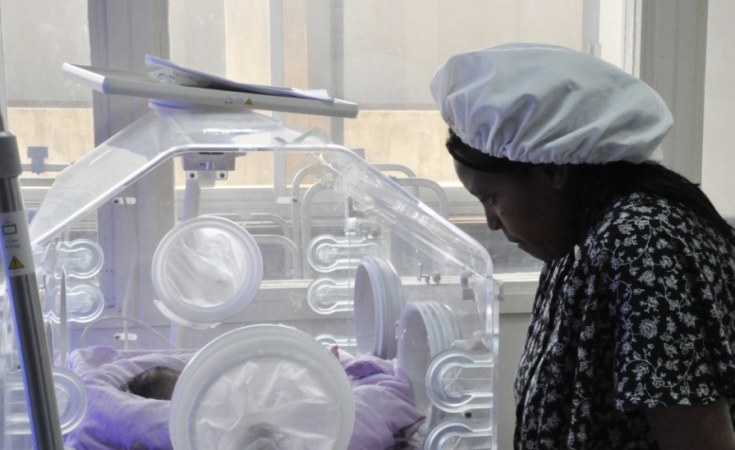Nairobi — When the SARS-CoV-2 virus caused the Covid-19 pandemic, many patients with other health issues refused to seek treatment. Their fears about the risk of infection was understandable. And yet patients who get hospital-acquired infections (HAIs) are more likely to die from those than from Covid.
Imagine going to hospital for basic surgery to fix a fracture oro remove your appendix. The surgery is successful, but two weeks later you are fighting for your life with a difficult-to-treat chest infection, an infection at the site of your surgery, or urinary or bloodstream infections.
HAIs increase the length and cost of hospital stays and elevate the risk of death. Indeed, whereas the death rate associated with Covid-19 is about two percent, the rate associated with HAIs is about 10 percent.
HAIs, also known as health-care associated or nosocomial infections, are those acquired while receiving treatment. They occur primarily in hospitals but can be contracted in nursing homes, dialysis centres and cancer treatment centres as well.
Hospitals should be places for healing, not making people sick.
Covid has made more visible the reality that treatment in hospitals is more than medical – everyone from the janitor to the head doctor has a role to play in stopping the spread of infections and viruses.
The risk is increased in patients admitted to the hospital for longer than 48 hours. The longer the stay, the higher the chance of acquiring an HAI, particularly if admitted to an intensive care unit.
Surveys in European countries show that at any one time, 5.9 percent of patients admitted to hospital acquire an HAI, and the prevalence is higher in less developed countries. Surveys conducted in four Latin American countries show that on average, up to 11.5 percent of all admitted patients contracted at least one HAI. Studies from Ethiopia document a prevalence of 16 percent.
HAIs may occur because one's immunity and ability to fight new infections is impaired by the underlying illness. There may be procedures or devices used in treatment that introduce infectious bacteria into the body. Among the most preventable sources of transmission are breaches in infection-control practices.
As we know from Covid-19, basic infection control includes washing or sanitizing hands before touching a patient; proper cleaning or disinfection of all equipment used on patients; and ensuring that devices used during patient care – such as catheters - are removed as soon as they are no longer necessary.
Antibiotics are too often prescribed when they are not effective, such as for viruses.
Another critically important measure is avoiding inappropriate antibiotic use. Globally, HAIs tend to be caused by bacteria and fungi that are resistant to commonly used antibiotics and antifungals, making these more difficult to treat. Indeed, Kenyan hospitals have reported high prevalence of drug resistant bacteria.
As an infectious disease specialist leading efforts to control antimicrobial resistance and implement antibiotic stewardship, I have often been called to manage patients with hospital acquired infections that were difficult and expensive to treat. Occasionally these infections have led to deaths, despite our best efforts.
Whereas some developed countries have clear action plans and conduct routine surveillance on HAIs, most developing countries do not. A walk through many hospitals in resource constrained settings will reveal challenges in implementing infection control measures.
Coordinated global action can make health-care institutions safer for all of us.
The pandemic has been a wake-up call to improve our health systems. We must take urgent action to ensure hospitals remain safe.
First, the World Health Organization (WHO) must strengthen its guidance to countries on preventing and reporting HAIs. Global funding agencies should direct resources towards increasing and equipping health-care personnel to reduce infections and to building microbiology laboratory capacity to improve infection detection and management.
In turn, national ministries of health should make patient safety a priority and require hospitals to have prevention and reporting plans. Simple measures at facility levels, including improvement of hand hygiene and avoidance of overcrowding, should be the bare minimum. Health regulatory authorities must hold facilities accountable for every HAI that occurs and be required to meet the cost of preventable HAIs.
Patients should also demand more: clean facilities, clean water sources and health care workers who observe the highest standards of hygiene and implement WHO standards of prevention.
When hospital acquired infections occur, they should be identified early, treated adequately, and the cost of treatment should not be excessive.
A hospital should not make you sick. We must push for global, national and local steps to ensure that does not happen.
Covid has shown how health systems can help – or fail – to overcome global challenges. We must use those lessons to overcome HAIs.
Let us make our hospitals safe.
Dr. Loice Ombajo is an infectious disease specialist at the University of Nairobi spearheading Antimicrobial stewardship efforts and management of COVID 19 in Kenya.


